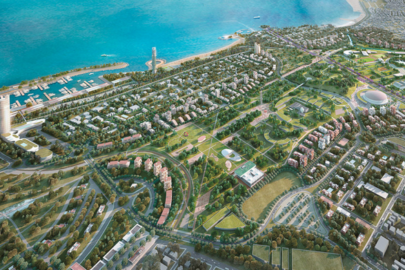The owners of private islet close to the celebrated archeological site of Sounion, southeast of greater Athens, have sued the Greek State to the tune of … 400 million euros over what they charge is the indirect confiscation of their property.
The three-square-kilometer islet of Patroklos – also known as Gaidoronisi (Donkey Island) – lies some 850 meters off the coast of Attica prefecture (greater Athens) and has for decades attracted investors’ attention, with one plan in the late 1990s controversially linked to the son of late Israeli leader Ariel Sharon.
Successive rulings by the state in 1982 and 1998 and 2014 essentially meant that absolutely no development or construction could take place on the islet, given that the remains of an ancient citadel and watchtower remain.
However, the latest ministerial decision in 2014 – in typical Greek state form – mandated that the island could not be transferred, sold or leased.
In a lawsuit citing both national and European law, the owners of the isle demand the right to either exploit their property. As a compromise, they also state that they would be willing to let the state buy the islet at a fair market price, or exchange it with land of an equal value elsewhere.
Patroklos was purchased in 1961 by attorney Konstantinos Yiatrakos from Ekaterini Benaki-Xidi. In time, it passed to three of Yiatrakos’ inheritors.
The isle featured in an alleged scandal involving Sharon’s son, Gilad, and a well-known Israeli developer, David Appel. In fact, Israeli media dubbed the incident the “Greek island affair” (Parashat HaEe HaYevani) at the time. Charges were initially filed but later dropped.
Besides Appel, international and domestic investors have expressed interest in developing a major resort on Patroklos, which lies closest to the coastal town of Palea Fokea and only a short distance from Cape Sounion itself, the spot where the ruins of an iconic Temple of Poseidon stand out.





































